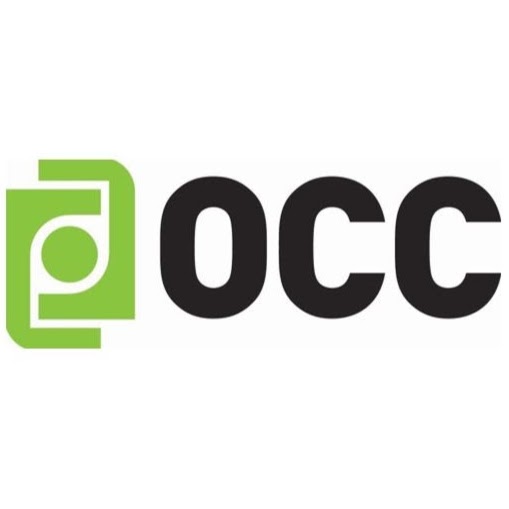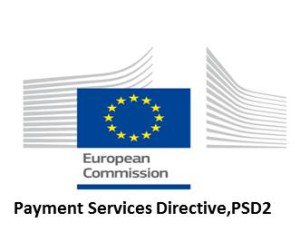Published
- 01:00 am

Visa Inc., today announced it will help its financial institution partners create customized digital card management experiences for their customers. As the Internet of Things (IoT) grows, consumers put their card on file and implement recurring payments in more places.
The new offerings will build on existing capabilities of Visa Token Service (VTS) to let issuers create a customizable suite of services to offer to their Visa cardholders. Visa Token Service replaces sensitive account information found on payment cards, such as the 16-digit account number, expiration date and security code, with a unique digital identifier that can be used to process payments without exposing actual account details.
New Capabilities to Provide Consumers with Greater Visibility and Control
The new Visa Network Hub Push Provisioning capability to be offered will simplify issuers’ access to push provisioning capabilities, by providing one integration point to interface with participating VTS token requestors. When implemented by an issuer, this would allow their Visa cardholders to easily add a digital version of their Visa card to participating VTS token requestors through the issuer’s mobile banking app or online banking channel. This means the bank’s consumers will not need to go through the process of individually signing-up for participating services, such as digital wallets, card-on-file merchants, e-commerce enablers and IoT providers. For example, the upcoming capability would help enable a consumer who receives a new Visa card from their financial institution to log into their bank’s mobile app and link their new card details to a digital wallet or online merchant before receiving the card in the mail.
In addition, an issuer may pair the Visa Network Hub Push Provisioning with Consumer Transaction Controls to create new experiences for cardholders. For example, issuers can offer cardholders the ability to give restricted card access to another user through a digital wallet, card-on-file merchant, e-commerce enabler and IoT provider. In this case, the cardholder could extend access in the form of a digital card to a trusted person, like a child or caregiver, to make purchases online or via mobile wallets, without giving access to a physical card or the full account details.
“As consumers become more connected, it is increasingly important for cardholders to be able to manage digital payment activities in one central location,” said Jim McCarthy, executive vice president, innovation and strategic partnerships, Visa Inc. “With these new capabilities, we are enabling our financial institution partners to deliver greater control, increased insights and enhanced security to their cardholders who make digital payments.”
Visa is also developing a new Visa Card-on-File Data API that will provide issuers with details around merchants where a consumer has stored their card on file. The API will scan transaction history and identify card-on-file transactions such as bill pay or subscriptions, providing Visa cardholders with additional insight into where their card is stored. Additionally, an issuer will receive information about where their customers’ cards are updated in the event of a reissuance, due to reasons like expiration or loss of card.
Related News
- 07:00 am

Senjō Group, a leading privately-held payments platform operator and FinTech investor headquartered in Singapore, has successfully obtained a Payment Institution (PI) license in Lithuania. The company received permission from the Bank of Lithuania to acquire Lithuanian payment institution Finolita Unio. In doing so, the innovative global investor has gained enhanced access to the European payments system via Lithuania.
Senjō Group’s portfolio of companies gives it a presence in more than 30 countries worldwide, and includes fast-growing companies in global electronic payments and financial technology. These companies benefit from the Group’s global footprint, financial capabilities and operational expertise.
According to Gavin Lock, Senjō Group’s COO, Lithuania’s EU-leading regulatory environment for FinTechs played a decisive role in the Group’s decision to establish a presence in the Baltic country: “Lithuania has made rapid progress in streamlining its regulatory framework for FinTech companies recently. The Bank of Lithuania especially, has a positive attitude towards FinTech, and this was one of the key factors in our decision to choose Lithuania as a gateway for strengthening our presence in the European payments ecosystem.”
“Senjō is a new type of FinTech investor, and we are looking forward to growing our core payments business and build our track record of providing scalable and reliable payments solutions for our customers,” Mr. Lock added.
This latest announcement comes on the back of other significant acquisitions by Senjō Group. At the end of 2016, the Group announced that they were acquiring payments innovator Kalixa Group for a total consideration of €29.0 million. This deal includes a completion accounts adjustment that could take the final tally to as much as €35.5 million.
“For FinTech, Lithuania has all the essential ingredients,” argues Mantas Katinas, General Manager of Invest Lithuania. “Fast, robust IT and banking infrastructure, a wealth of experienced talent, plus great quality of life at a really affordable cost. Moreover, more and more spaces are opening up in Vilnius offering a complete range of services for FinTech companies, from infrastructure and service packages to advice on starting and growing your business, all in a single location,” Mr. Katinas points out.
The Bank of Lithuania provides preliminary advice to financial institution licence enquiries within one week, regarded as one of the fastest turnarounds in the EU. Full authorisation is then issued within 2 to 6 months.
Lithuania has long been considered a recognised global FinTech hub. Payment and electronic money agencies in Lithuania can access the Single European Payments Area (SEPA) through the infrastructure of the Bank of Lithuania, enabling them to avoid the broking services of many commercial banks. Lithuanian regulations now allow the use of non-face-to-face identification systems for FinTech product development, fostering further growth and development.
Related News
- 08:00 am

Fintech start-up APEXX has appointed ex-WorldPay exec Toreson Lloyd as its Sales Director. Lloyd brings more than seven years experience in the payments industry, as an acquiring specialist and enterprise customer account manager.
In April APEXX launched a new platform which lets merchants access a single marketplace of all acquirers and payment providers and quickly integrate with their technology. It also announced a host of high profile international partners including Alipay, iZettle, Mastercard, NTT DATA, Visa iPay88, Payvision, Credorax, SIX payment services, Paysafe Group, Processing.Com, Transact Europe, CardStream and JetPay.
Toreson Lloyd, Sales Director at APEXX, said, “It’s hugely exciting to join such an ambitious company at this early stage. I believe APEXX has the potential to massively disrupt the global payments market for the better, and I find the company’s mission of introducing more transparency and competition into the global payments market hugely inspiring.”
Peter Keenan, co-founder and CEO at APEXX, said, “Having someone of Toreson’s calibre on board is a real coup for APEXX. He brings a wealth of payments expertise and industry contacts that will be invaluable as we grow our customer base.”
Related News
- 04:00 am

National Settlement Depository (NSD), Russia’s central securities depository, has completed development of the e-voting platform. The new service will be used for the first time at Sberbank’s annual general meeting of shareholders summing up the 2016 results. The e-voting platform is a universal voting mechanism. It enables security holders not only to remotely participate in shareholder meetings held via either joint presence but also to vote at AGMs held in absentia.
To vote, a shareholder shall visit www.e-vote.ru. In the upper right corner of the screen, he/ she shall click on the Vote icon. Then, the shareholder will be taken to the authorization page where he/she will input login and password information to use the State Services Portal.
If the authorization is successful, the shareholder will select an issuer from the list in his/her account. Then, he/she shall select a relevant corporate action; on the special page, the shareholder will receive access to all necessary materials and documents associated with the corporate action, as well as to the voting function.
About the e-voting platform
Implementing an e-voting service in the Russian market became possible once Federal Law № 210-FZ was adopted; it established the right of shareholders to use this type of voting at shareholders meetings as of 1 July 2016. Issuers (such as Sberbank) which added the e-voting option for their shareholders to their charters are entitled to propose such service.
The e-voting platform provides shareholders with free access to the e-voting website.
The service has the following functionality:
- An opportunity to register and vote electronically[1] (by filling out an electronic ballot at www.e-vote.ru);
- An opportunity to connect to the video or text broadcasting (depending on the issuer’s choice);
- An access to agenda items and materials of the meeting;
- Online communications with the issuers during the meeting.
The platform is accessible anywhere in the world; no special technical means are required to vote. The new service is available for all categories of shareholders regardless of where their securities are held - in the register or with a depository. If an investor owns shares of a few companies, he/she may vote via the platform’s services without bearing additional costs. The e-voting platform is a turnkey solution which can be integrated into issuers’ and registrars’ computer systems.
When using the e-voting platform, an issuer and its audit committee can receive data about shareholders’ votes in the online mode. To calculate votes and adopt resolutions, the issuer can timely register the votes of shareholders who attended the meeting and the votes submitted via the e-voting system. The document interchange between issuers, registrars, and the CSD will be carried out on the basis of ISO international formats implemented by NSD as part of corporate action reform. It provides for a straight through process of automation across all stages of meetings.
This platform will be convenient for different issuers: from major companies with tens and hundreds of thousands of shareholders to small issuers.
The use of the e-voting service by issuers becomes very important if shareholders live in different Russian regions and abroad.
Related News
- 05:00 am

Enterprising, global digital-only bank, iam bank (iam), which launches in September 2017, will roll out free learning and therapy-based financial workshops across the UK and USA to educate and empower consumers around their financial decisions; a move which is the first of its kind.
iam understands the mental health implications that can come as a result of financial distress and aims to help and empower UK and US consumers to achieve financial wellness.Furthermore, everyone who attends a workshop, will be given the opportunity to sign-up for an exclusive iam account, giving them the tools to make their money go further; pay off their debts sooner and build their wealth and savings faster, all through their spending behaviours.
Lee Travers, Chief Executive Officer of iam, who has more than 20 years’ experience in the digital space, is passionate to change the stigma surrounding mental health and lead an open conversation around money.
"I have seen too many people torn down by financial pressures; their minds ruined, often feeling helpless and lost and not knowing where to turn to."
He adds: "We are building iam so that customers no longer need to feel alone. It will be available and accessible to everyone; we want to provide a service that no one else has provided before. At iam you will be more than your money. We will not penalise our customers with negative fees or overdraft charges, as this is neither productive or customer-focussed. Instead, our machine learning technology will keep our members one step ahead, preempting negative scenarios so that we can work together to avoid them," he adds.
Machine learning intelligence and algorithms behind iam will ensure every single member is presented with options and guidance aligned with their needs, behaviors and financial status.
Related News
- 02:00 am

OCC, (Options Clearing Corporation) the world's largest equity derivatives clearing organization, and EquiLend Clearing Services (ECS), the global securities finance trading platform and technology provider, have joined forces to bring greater access to central counterparty clearing in the securities finance marketplace.
ECS has developed a Middle Office platform to support the infrastructure for OCC's Market Loan Program by maintaining outstanding loan information for the Market Loan program; processing post-trade functions including mark to market, returns, recalls and other trade lifecycle events; and interacting with OCC's proprietary system to facilitate settlements.
ECS also has developed the ECS Gateway, which offers straight-through processing between EquiLend's industry-leading trading and post-trade services to the ECS Middle Office. OCC will use the ECS Gateway to facilitate all matched trades and lifecycle events for processing in the Market Loan Program on behalf of ECS and other loan markets.
The first bilaterally agreed disclosed trades executed on the EquiLend Clearing Services platform already have successfully flowed from the ECS Gateway through the ECS Middle Office to OCC. Clients who wish to leverage the full straight-through processing capabilities may do so by linking their proprietary systems to ECS. By using the service, clients will have the ability to submit bilaterally agreed trades to EquiLend Clearing Services for matching. ECS will then submit the matched trade to OCC leveraging the ECS Gateway and ECS Middle Office systems.
Brian Lamb, CEO of EquiLend, says: "Our strategic alliance with OCC on the Market Loan Program is a critical step toward bringing greater access to central counterparty clearing services to the securities finance market. This collaboration between EquiLend and OCC allows us to jointly build upon OCC's strong foundation in securities finance clearing. With the launch of the ECS Middle Office and ECS Gateway, securities finance market participants have clearing access while benefiting from the efficiencies they are used to with EquiLend."
Chip Dempsey, OCC Chief Commercial Officer, says: "Our collaboration with EquiLend will enhance our clearing services for securities lending. EquiLend's culture, technology and network make them an ideal partner as we work to strengthen the resiliency of the securities lending market and introduce innovations designed to expand access to and utilization of centralized clearing."
In 2016, OCC cleared more than 1.9 million new stock loan transactions, up 37% from 2015. Through April 2017, year-to-date stock loan activity is up 17% from a year ago with more than 728,000 new transactions.
Related News
- 07:00 am

The European Banking Authority (EBA) launched today a consultation on its draft Guidelines on security measures for operational and security risks under the revised Payment Services Directive (PSD2).
The Guidelines have been developed in close cooperation with the European Central Bank (ECB), and are in support of the objectives of PSD2, such as strengthening the integrated payments market in the EU, mitigating the increased security risks arising from electronic payments, and promoting equal conditions for competition. The consultation runs until 7 August 2017.
PSD2 requires payment service providers (PSPs) to establish a framework with appropriate mitigation measures and control mechanisms to manage operational and security risks arising from the payment services they provide, and has mandated the EBA to specify the details of these requirements.
In particular, these draft Guidelines cover the governance of the operational and security risk management framework, the risk management and control models, outsourcing, the identification, classification and risk assessment of functions, processes and assets, as well as the protection of the integrity of data, systems and confidentiality, physical security and asset control.
In addition, the draft Guidelines propose requirements in relation to the monitoring, detection and reporting of security incidents and risks, business continuity management, scenario-based continuity plans, incident management and crisis communication, the testing of security measures, and situational awareness and continuous learning. Finally, in order to ensure that the security measures implemented by the PSPs are well communicated to payment service users (PSUs) the Guidelines also cover the management of the relationship with PSUs.
Consultation process
Responses to this consultation can be sent to the EBA by clicking on the "send your comments" button on the website. All contributions received will be published following the close of the consultation, unless requested otherwise. Please note that the deadline for the submission of comments is 7 August 2017 and that no attachments can be submitted. A public hearing will then take place at the EBA premises on 20 June 2017 from 13.00 to 16.00 UK time.
Legal basis and background
These Guidelines have been drafted in accordance with Article 95(3) of Directive (EU) 2015/2366 on payment services in the internal market (PSD2), which mandates the EBA, in close cooperation with the ECB, to issue Guidelines with regard to the establishment, implementation and monitoring of the security measures, including certification processes where relevant. The Guidelines are addressed to both competent authorities and PSPs.
Related News
- 08:00 am

Today, PPRO Group announced that the company is one of the 60 companies and associations operating on EU or global level in the financial and payments industry that have signed a manifesto to lobby the EU in regards to making changes to the current draft of the RTS of the PSD2. With the negotiations around the RTS proposed by the EBA reaching a crucial stage, the coalition of 60 companies strongly believes the proposed standards, specifically those in relation to the communication between fintechs and banks on behalf of the consumer, will have a negative impact as opposed to what PSD2 originally intended.
Below is the full text of the coalition manifesto:
"We, a coalition of 60 companies and associations operating across all EU Member States and at a global level in the financial services industry, have signed a manifesto seeking the European Commission to make changes to the current draft of the Regulatory Technical Standards (RTS) under the second Payment Services Directive (PSD2). If the RTS which are currently proposed by the European Banking Authority (EBA) are adopted, they will have the potential to negatively impact our companies’ business models, reversing what has been achieved by Fintech companies over the last years in Europe.
We are now drawing closer to the final, crucial stages in negotiations around the RTS. The coalition of 60 companies strongly believes the proposed standards, specifically those in relation to the communication between fintechs and banks on behalf of the consumer, will have a negative impact as opposed to what PSD2 originally intended. The proposed standards will have an adverse impact on competition, jeopardise consumer control over personal financial data, as well as have a critical negative impact on the future trajectory of innovation in Europe. The proposed standards are not only inconsistent with PSD2, but they will also force fintechs to become technologically dependent on banks, positioning the banks as gatekeepers of the fintech sector.
The manifesto outlines our mutual concerns and suggestions as to how the standards should be amended in favour of competition, innovation and consumer choice.
We, the signatories of the manifesto, believe that the EBA’s RTS not only do not reflect the principles laid down in PSD2, but are distorting them by banning such a secure proven technology as Direct Access via the bank’s existing – and well maintained – customer-facing online banking interface. We therefore, urge policy makers to align the RTS with the PSD2 text, so that it no longer forecloses specific technologies, such as Direct Access, and preserves technology neutrality and consumer choice in the payment space.
We engage in this industry-wide and important effort to safeguard the future of the European fintech industry. We do it for the benefit of all European consumers, for continued growth and innovation in e-commerce and for continued European leadership in Fintech."
About PPRO Group
PPRO Group is cross-border e-payment specialist, PPRO Group, (PPRO) removes the complexity of international e-commerce payments by acquiring, collecting and processing an extensive range of alternative payments methods for PSPs under one contract, through one platform and one single integration. PPRO’s platform supports international payment methods across more than 190 countries, allowing merchants to expand their e-commerce reach, arrange hassle-free collection and achieve higher conversion rates.
PPRO also issues Visa and MasterCard consumer prepaid cards, under its own brand name VIABUY, and enables B2B prepaid cards, under its CROSSCARD brand, which can be issued both physically (as vouchers) and as virtual cards or NFC devices (as stickers).
Founded in 2006 and headquartered in London, PPRO is an EU-certified financial institute with an e-money license issued by the British regulatory body FCA. For more information, please visit www.ppro.com.
Related News
- 09:00 am

CA Technologies (NASDAQ:CA) today announced CA Risk Analytics Network, the payment industry’s only card-issuer network that stops card-not-present fraud instantly for network members using real-time behavior analytics, machine learning and global transaction data to reduce online fraud losses by an average of 25 percent* – a potential of $2.2 billion in savings.**
As a cloud-based service, CA Risk Analytics Network incorporates a new advanced neural network model, backed by real-time machine learning, to protect 3-D Secure card-not-present (CNP) transactions. It learns from, and adapts to, suspected fraudulent transactions in an average of five milliseconds, instantly closing the gap for potential fraud using the same card or device across all members of the network.
According to Javelin’s 2017 Identity Fraud Report, explosive growth in card-not-present fraud, driven by the increasing e-commerce and m-commerce volume, as well as the EMV liability shift, contributed to the rise of existing-card fraud. “Just as e-commerce is displacing point-of-sale transactions, the same is true for the channels in which fraudsters choose to conduct their business. Among consumers, there was a 42 percent increase in those who had their cards misused in a CNP transaction in 2016, compared to 2015 levels,” the report showed.
“Detecting anomalies quickly and ensuring frictionless authentication are the first steps in preventing card-not-present fraud without impacting legitimate cardholder transactions,” said Terrence Clark, general manager for CA Technologies Payment Security solutions. “Our data scientists have applied advanced analytics and new, real-time, machine learning algorithms to the global pool of 3-D Secure, e-commerce transaction data and device insights maintained by the CA Payment Security Suite. This provides faster and more accurate online fraud detection and prevention, reducing fraud losses for network members while streamlining online shopping experiences for consumers.”
CA’s payment security solutions protect billions of online transactions supporting hundreds of millions of cards and thousands of card portfolios worldwide. CA Risk Analytics Network is open to card issuers with portfolios of any size: from global banks with millions of cardholders, to smaller, or regional financial institutions.
Support for 3-D Secure protocols today and in the future
CA Risk Analytics Network and the CA Payment Security Suite support the 3-D Secure specification today, and will support the new EMV 3-D Secure 2.0 specification, which addresses authentication and security for card-not-present, e-commerce transactions using smart phones, mobile apps, digital wallets and other forms of digital payment. The 2.0 protocol will make extensive use of device data, giving CA Risk Analytics Network subscribers a growing new source of information to reduce fraud and optimize the customer experience across all consumer shopping devices and all versions of the 3-D Secure protocol. Support for both the 1.0 and 2.0 specifications is important as adoption rates of the updated specification among card issuers and merchants will vary.
*Data based on applying the new CA Risk Analytics Network fraud model to historical customer data over a 90-day period.
** Potential savings based on existing-card account fraud of $8.8 billion in 2016, reported in “2017 Identity Fraud: Securing the Connected Life,” a Javelin Strategy & Research survey conducted among 5,028 U.S. adults over age 18.
Related News

Chris Skinner
Chairman at Finanser
Larry Summers, former director of the National Economic Council for President Barack Obama, writes a regular column in The Financial Times. see more









